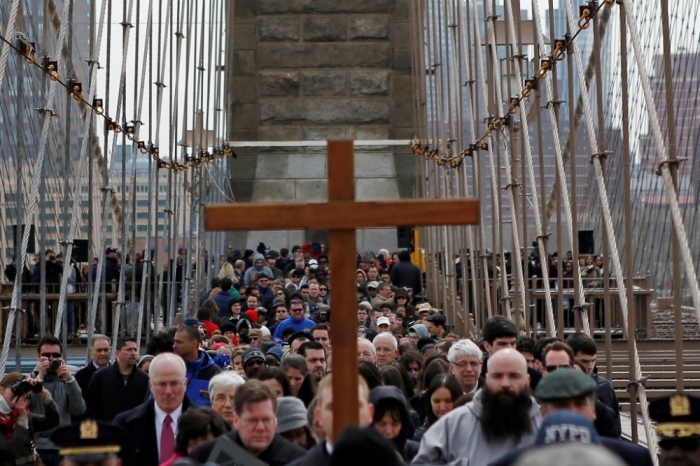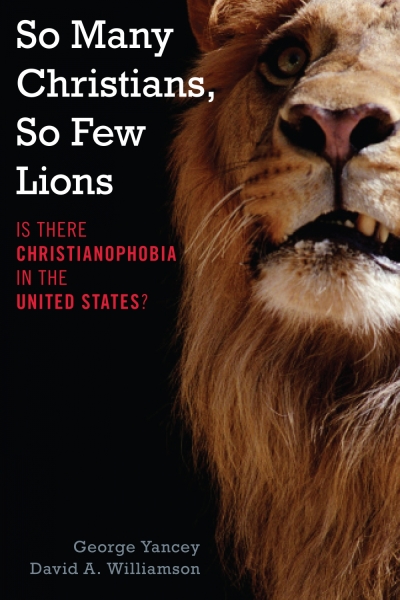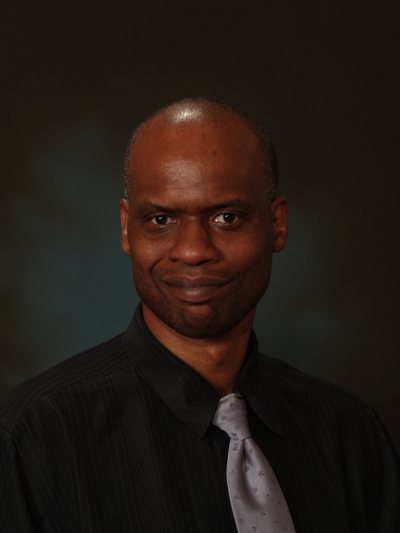Sociologists: 'Christianophobia,' Anti-Christian Hostility Infects Powerful Elite Subculture (Interview)

A small, but elite group of Americans demonstrate signs of anti-Christian hostility, sociologists David Williamson and George Yancey claim in their new book, So Many Christians, So Few Lions: Is There Christianophobia in the United States?
In an email interview with The Christian Post, Yancey, professor of sociology at the University of North Texas, explained that Christians are fortunate in one sense, because those with anti-Christian hostility are small in number; but in another sense, they should be concerned, because those with "Christianophobia" tend to be powerful elites with influence in certain important areas, such as higher education.
The data for their research comes from a large national survey, the American National Election Survey, and interviews they conducted with members of liberal advocacy organizations.
The title of the book is a reference to how some Christians were put to death during the Roman Empire, and the phrase can be found on bumper stickers. Several of the interviewees used some variant of the "so few lions" theme when describing their attitudes toward Christians.
Yancey added that he and Williamson, associate professor of sociology at the University of North Texas, hope their book will make those who are hostile toward Christians more aware of their own biases so that they can correct them.
Here is a transcript of that interview:
CP: Why did you, and co-author David Williamson, want to research and write about anti-Christian hostility?
Yancey: There is a lot of literature on hostility toward many different groups but just about none on hostility toward Christians. Yet when we collected qualitative data from cultural progressive activists we quickly saw some of the unnecessary vitriol and fears within many of our respondents. We also saw the social status of those who exhibited this hatred and many of them would be in positions that allowed them to at least subtly act on their anger and fears. That motivated us to take a more systematic look at Christianophobia and speculate on how this phenomenon influences certain social aspects in the United States.

Another aspect that drove me to work on this project was that while I consistently saw evidence of Christianophobia in other areas of my life and in our society, unlike other types of intolerances, those who exhibited Christianophobia do not tend to think that they are intolerant. Usually those who do not like blacks or Muslims admit that they are intolerant but simply try to justify their intolerance. Those with Christianophobia tend to deny that they are intolerant but rather that they are fairly interpreting social reality. Envisioning themselves as fair and free of intolerance allows them to blame those they detest rather than recognize how their emotions have distorted their intellectual judgments.
By documenting just how hateful some of the attitudes are toward Christians, and who tends to have such hateful attitudes, I hope to bring Christianophobia into the light so that we, as a society, can discuss this social problem and how we might address bigotry in all of its myriad forms.
CP: You found that there's a subset of progressives, or liberals, that have animosity toward Christians, or "Christianophobia." According to them, what is wrong with Christians?
Yancey: In the minds of many of the respondents Christians are ignorant, intolerant and stupid individuals who are unable to think for themselves. The general image they have of Christians is that they are a backward, non-critical thinking, child-like people who do not like science and want to interfere with the lives of everyone else.

But even worse, they see ordinary Christians as having been manipulated by evil Christian leaders and will vote in whatever way those leaders want. They believe that those leaders are trying to set up a theocracy to force everybody to accept their Christian beliefs. So, for some with Christianophobia, this is a struggle for our society and our ability to move toward a progressive society. Christians are often seen as the great evil force that blocks our society from achieving this progressive paradise.
CP: Demographically, you found that Christianophobes are mostly white, wealthy, well-educated and non-religious. Is the fact that this is mostly an elite group good or bad for Christians? In other words, given a choice, would you rather be hated by elites or non-elites?
Yancey: Obviously all things being equal, an elite individual can do more damage to a person than a non-elite individual. But this does not mean that Christians have it worse than all other groups. We also have to factor in the number of people with Christianophobia. For example, more people have hostility toward atheists than toward Christians, but those individuals do not tend to be white or highly educated. Thus, they do not have the level of per-capita power of those who do not like Christians.
So is a group worse off if more people do not like them or if those who do not like them have a lot of social power, but there are fewer of them? Context matters to answer such a question. If you want to get elected to political office, then atheists are at a disadvantage since more people do not like them. But if you want to get a higher education, then you will run into a lot more people with power who hate Christians than who hate atheists.
CP: Can your findings help us understand the recent trend of "intolerant liberalism," such as the examples The Christian Post noted in, "33 Examples of Intolerant Liberalism in 2014"?
Yancey: That is an interesting list and, to be fair, some of the examples are just political gamesmanship that you see from both Republicans and Democrats, such as the disinviting of Charles Murray. I am not even sure if Murray is a Christian.
There are other examples where it is less clear whether it is Christianophobia or something else, much like it is often hard for myself, as an African-American, to know when a person is acting due to racism or some other motivation. I think of the conflict over religious freedom laws in this way.
But there are some that I think are hard to defend, such as the policies at California colleges which have led to the removal of Christian groups. I have written about such policies and still fail to hear a solid reason why we should give an atheist the "right" to be the president of a Christian group. The only viable reason I can think is because this rule allows college administrators to express some degree of latent Christianophobia with a fiction of promoting equality.
Ultimately here is where the research that David and I conducted may be of service. We documented that some level of Christianophobia is present among certain powerful subcultures in our society. This helps us understand some actions in our society.
People do not like to admit that they are biased or bigoted but often those disaffinities come out in other ways. Because of the attention rightly paid to bigotry based on race, sexual preference, sex and even minority religion status, there is social pressure on those who take actions that may harm those groups to engage in introspection to make sure they are not being unfair.
I have seen a dearth of such introspection by those who make decisions that may harm Christians. I hope that this work will encourage such critical thinking among those with Christianophobia and perhaps help some to confront a bigotry they did not realize they possessed.
CP: Sociologist Peter Berger famously remarked that if Sweden is the most secular country and India is the most religious country, America has become a nation of Indians ruled by Swedes. At a Faith Angle Forum talk, he added, "many of the problems of America have to do with the fact that the Indians have become increasingly pissed off at the Swedes." In some ways, your book seems to present a correlate to that: the Swedes "have become increasingly pissed off at the" Indians. Do you agree?
Yancey: I think that is a great way to think about it. I would put it this way: Because of their numbers the Indians historically had a lot of political and cultural power in our society. They may not be in the elite political positions but the Swedes in those positions could not afford to ignore what they wanted. The Swedes for years documented the excesses and biases of the Indians. Over time, they begin to look down on the Indians. But they also gained educational and cultural power and begin to ignore the concerns of the Indians. But the Swedes never considered that many of the social processes that produce bigotries in the Indians also can produce bigotries in themselves. They became quite adept at seeing social dysfunctions in the Indians but not in themselves.
While part of the reason for this book is to provide some insight to protect the Indians, I also see it useful for helping the Swedes engage in the introspection they need to deal with their own failings and to live by their own stated values.




























